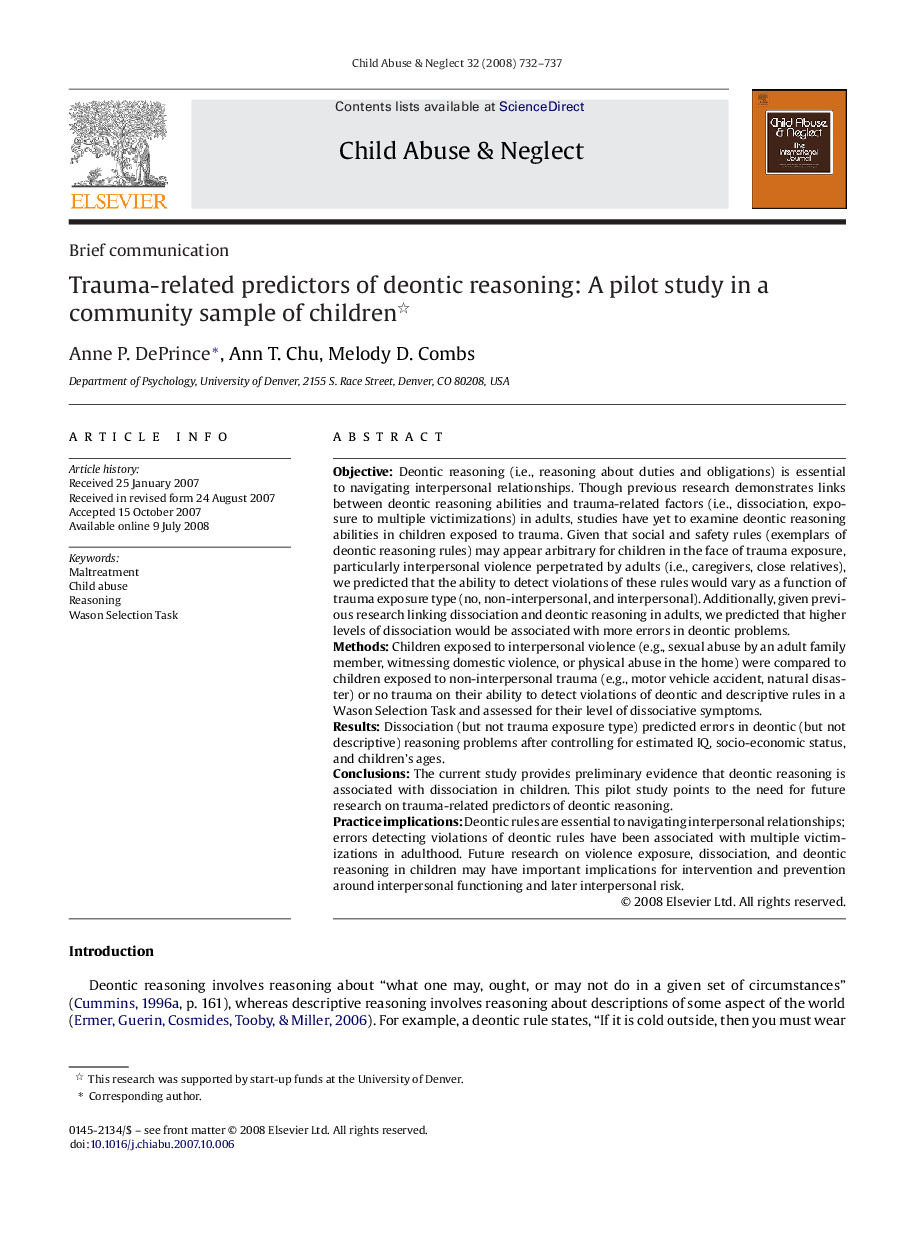| کد مقاله | کد نشریه | سال انتشار | مقاله انگلیسی | نسخه تمام متن |
|---|---|---|---|---|
| 345628 | 617538 | 2008 | 6 صفحه PDF | دانلود رایگان |

ObjectiveDeontic reasoning (i.e., reasoning about duties and obligations) is essential to navigating interpersonal relationships. Though previous research demonstrates links between deontic reasoning abilities and trauma-related factors (i.e., dissociation, exposure to multiple victimizations) in adults, studies have yet to examine deontic reasoning abilities in children exposed to trauma. Given that social and safety rules (exemplars of deontic reasoning rules) may appear arbitrary for children in the face of trauma exposure, particularly interpersonal violence perpetrated by adults (i.e., caregivers, close relatives), we predicted that the ability to detect violations of these rules would vary as a function of trauma exposure type (no, non-interpersonal, and interpersonal). Additionally, given previous research linking dissociation and deontic reasoning in adults, we predicted that higher levels of dissociation would be associated with more errors in deontic problems.MethodsChildren exposed to interpersonal violence (e.g., sexual abuse by an adult family member, witnessing domestic violence, or physical abuse in the home) were compared to children exposed to non-interpersonal trauma (e.g., motor vehicle accident, natural disaster) or no trauma on their ability to detect violations of deontic and descriptive rules in a Wason Selection Task and assessed for their level of dissociative symptoms.ResultsDissociation (but not trauma exposure type) predicted errors in deontic (but not descriptive) reasoning problems after controlling for estimated IQ, socio-economic status, and children's ages.ConclusionsThe current study provides preliminary evidence that deontic reasoning is associated with dissociation in children. This pilot study points to the need for future research on trauma-related predictors of deontic reasoning.Practice implicationsDeontic rules are essential to navigating interpersonal relationships; errors detecting violations of deontic rules have been associated with multiple victimizations in adulthood. Future research on violence exposure, dissociation, and deontic reasoning in children may have important implications for intervention and prevention around interpersonal functioning and later interpersonal risk.
Journal: Child Abuse & Neglect - Volume 32, Issue 7, July 2008, Pages 732–737